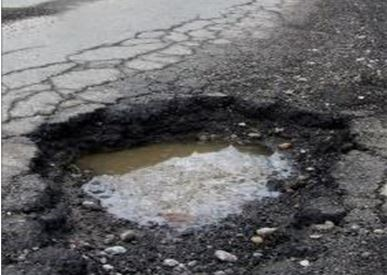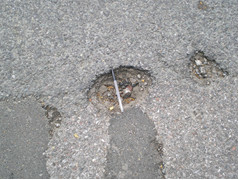Repair standards for road defects
The council is responsible for the maintenance of all the roads in the Borough.
We carry out regular work to maintain our roads. We also fix problems you tell us about.
Monitoring Reading’s roads
We regularly inspect all our roads and footpaths to identify defects and arrange repairs. The frequency of inspections depends on the classification of each road or footpath. It can be every 2 weeks (town centre only), 3 monthly, 6 monthly or every 18 months.
Busier roads and footways get inspected more frequently than others.
In addition, condition surveys, using specialist vehicle mounted equipment, are carried out on the classified roads (A, B and C Roads, typically the busier routes). The results of these surveys are used with other data to decide which roads are resurfaced.
Repairing our roads: defects (potholes and minor repairs)
Defects may be reported to the council or identified via a routine highway inspection. The repair of defects are prioritised by a highway inspector based on a visual assessment of the risk posed to users (pedestrians and motorists).
There is no national definition of a pothole and consequently the council has adopted a risk-based definition. Defects pose different risks to users depending on their location and the level of use of the road or footway. As a priority the council repairs defects that are deeper than 40mm, wider than 300mm and have a vertical edge.
Note: 40mm is about the size of two 20p pieces. 300mm is about a foot or the length of a school ruler.


Response to defects
Not all potholes that are reported to us meet the criteria required to instigate repair. We will not ignore any reports, however, we do have to prioritise our repairs on safety, and it is not practical to fix all the problems that are reported to us. Based upon the inspectors’ assessment of a defect it will be allocated a response time for repair or make safe, which may be:
- 3 hrs (including weekends and Bank Holidays).
- 24hrs (including weekends and Bank Holidays).
- 7 days (calendar days)
- 28 days (calendar days)
- Programmed works*
* Defects that are recorded as programmed for repair are used to assist with the choice of roads and footways for resurfacing.
Examples

